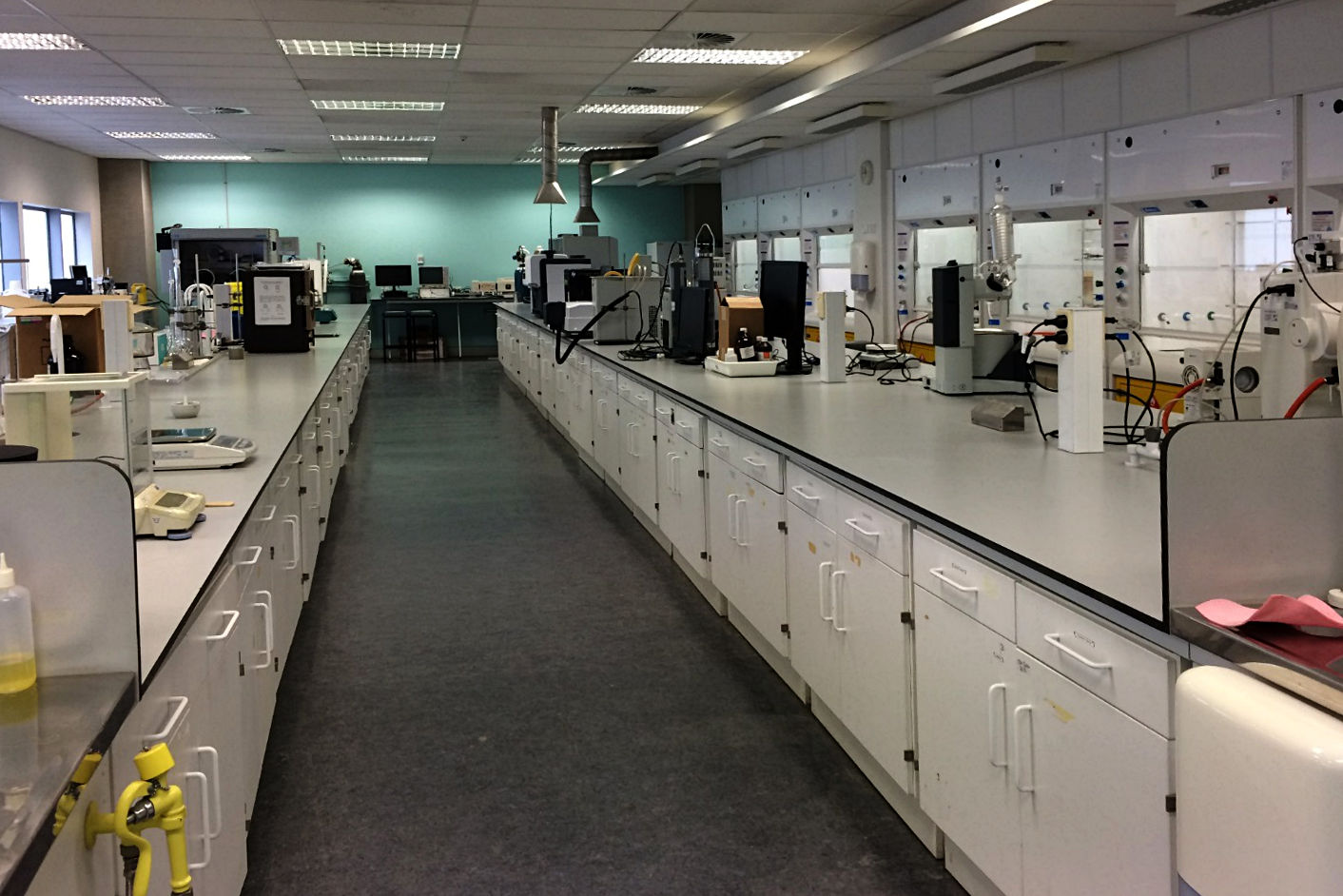Science
 New AUT School of Science’s Chemistry Laboratory.
New AUT School of Science’s Chemistry Laboratory.
The future of science will rely heavily on scientists who are capable and willing to participate in collaborations involving scientists and other professionals from a variety of disciplines and backgrounds. In line with this, we have established mutually beneficial collaborations with a wide range of organizations.
In addition, most research projects in our laboratory are interdisciplinary; that is, individuals will acquire skills and knowledge in several areas of chemistry encompassing techniques and methodology that would be traditionally be classed as inorganic, biological, organic, physical and/or analytical chemistry. NMR spectroscopy, UV-visible spectroscopy, stopped flow spectroscopy, laser flash photolysis, IR spectroscopy, X-ray crystallography, mass spectrometry, HPLC, GC and chromatography separation procedures are techniques which we routinely use in our research, and are all available at the School of Science at AUT. Students will also be exposed to air-free techniques, and become acquainted with Schlenk lines and working in a Glove box.
In addition, our group has weekly group meetings where an individual presents their research results and someone else presents a recent paper from the literature. By the time you have “graduated” from our group, rest assured you will have excellent presentation skills, which will be invaluable for your further career – regardless of what you will be doing!
Finally, our group is very much an “international” affair, as is the undergraduate and graduate student population at Auckland University of Technology. Be prepared for a multicultural experience and mixing with people from other countries!

 In July 2009, the Brasch Group acquired a state-of-the-art Applied Photophysics SX20 stopped-flow spectrophotometer, capable of measuring the rates of fast (ms) reactions. The instrument moved with us to Auckland.
In July 2009, the Brasch Group acquired a state-of-the-art Applied Photophysics SX20 stopped-flow spectrophotometer, capable of measuring the rates of fast (ms) reactions. The instrument moved with us to Auckland.
